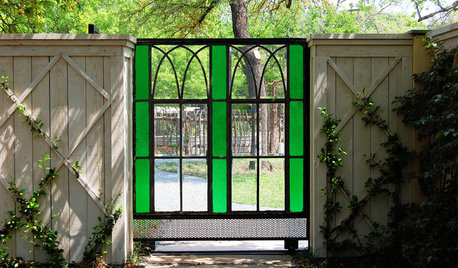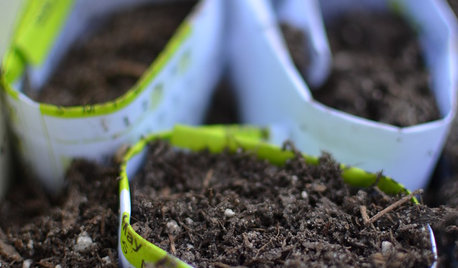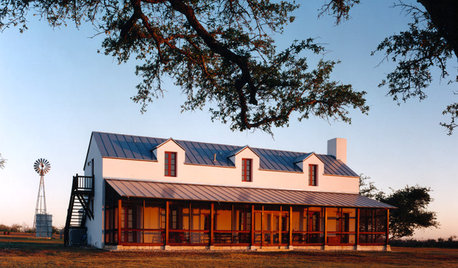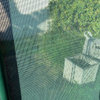Howdy from Texas
soilguy
15 years ago
Related Stories

SALVAGEReinvent It: An Eclectic Texas Garden Grows From Creative Salvaging
Teardown pieces and upcycled finds turn a next-door lot into a garden brimming with vegetables and originality
Full Story
HOUZZ TOURSHouzz Tour: Unplugging From High Tech in a Texas Farmhouse
This simply styled home gives an Austin family all the warmth of comfort food and all the amenities of modern times
Full Story
HOUZZ TOURSMy Houzz: From Train Depot to Family Home in Texas
Sleeping in a train station isn't normally an enviable affair — unless it's a remodeled 4-bedroom beauty filled with family heirlooms
Full Story
GREENHOUSESA Greenhouse Rises From Texas Tornado Wreckage
Barn damage became a blessing in disguise for a thrifty, creative couple with a hankering for more greenery
Full Story
ARCHITECTURESee Light Play in 14 Homes From Paris to Texas
Whether their screens let the light dance or their opaque windows diffuse it, these homes are beacons of great design
Full Story
RUSTIC STYLEHouzz Tour: Boathouse a Cozy Second Home for a Texas Couple
Their lakeside home away from home, steps away from their primary residence, also serves as a guesthouse
Full Story
GARDENING GUIDESTexas Gardener's August Garden Checklist
Here's how to help your garden thrive from the hot, dry month of August through fall
Full Story
FARMHOUSESHouzz Tour: German Tradition Deep in the Heart of Texas
Rooted in architecture from the 1800s, this award-winning home mixes history with the vernacular of today
Full Story
HOUZZ TOURSHouzz Tour: A New Texas Farmhouse Pulls a Neat Trick
Fresh from the drawing board, this home for organic farmers in Austin looks remodeled and expanded over time
Full Story
HOUZZ TOURSMy Houzz: A DIY Gold Mine in the Heart of Texas
From a sawn-down sleigh bed to book pages as wallpaper, the projects in this home are a testament to the homeowners' ingenuity
Full StoryMore Discussions







gardener_sandy
soilguyOriginal Author
Related Professionals
Allentown Landscape Contractors · Cockeysville Landscape Contractors · Englewood Landscape Contractors · Lantana Landscape Contractors · Louisville Landscape Contractors · Alhambra General Contractors · Catonsville General Contractors · Del Aire General Contractors · Flint General Contractors · Mineral Wells General Contractors · National City General Contractors · Johns Creek Siding & Exteriors · Manassas Siding & Exteriors · Paterson Siding & Exteriors · Puyallup Siding & Exteriorsgardener_sandy
soilguyOriginal Author
tommie_jo
soilguyOriginal Author
gardener_sandy
soilguyOriginal Author
gardener_sandy
soilguyOriginal Author
gardener_sandy